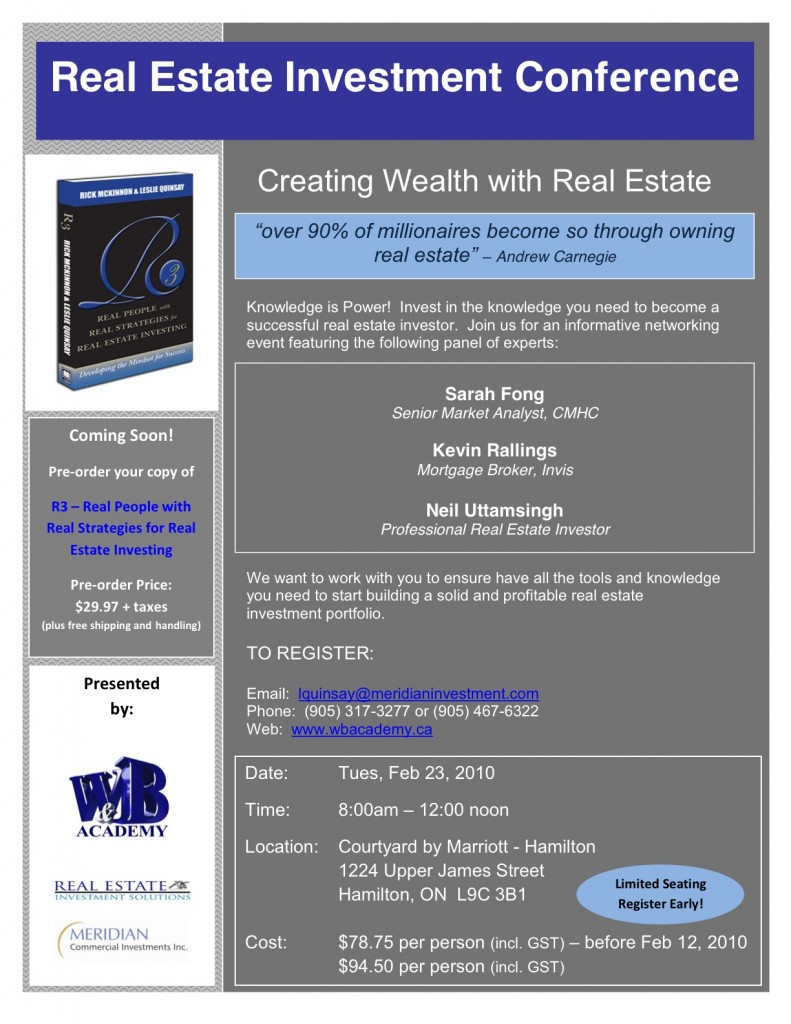
In Part One of this article, we discussed the first four common questions that Joint Venture Partners ask.
In this article we are going to cover the last four common questions that are asked by Joint Venture Partners. I have listed them below in no particular order.
Before we kick things off, I would like you to check out after reading my article, a recent article by Florence Foote. Florence discusses, investing in the path of progress, a concept that I will soon be writing about on my blog.
Now, back to business…
5) JV Partners will ask, “What is your share in the deal?”
The answer to this questions is very simple and straight forward. You tell your JV Partner that as the real estate investor you will be doing all of the work, the joint venture partner will be putting up all of the money and the profits and cash flow will be split 50/50.
6) JV Partners might ask, “This seems rich, is this negotiable?”
Your answer to this is, “No”.
You must say no politely but with authority.
There are 2 reasons why your answer is ‘No;.
First, if you have never purchased a property with a JV Partner, you will learn quickly that you are going to be earning your 50% because there is a lot of work involved in buying and managing rental properties. There is a lot more work than many people think, especially people who have never invested in real estate before.
Second, when asked if the split is negotiable, if you waiver and say that it is negotiable, you have lost value in the eyes of your JV Partner. You will also seem less attractive to give money to. If you are backing yourself into a corner in which you are re-negotiating, your perceived value has decreased.
There will be instances where people will push you on this. They will want to make you agree to a split other than 50/50.
Take note that you will not agree to a split other than 50/50. There is a lot of work involved on your end.
If you cannot come to agreement with the potential joint venture partner with regards to the 50/50 split, politely tell them that this opportunity is not for them. End of conversation.
7) JV Partners will ask, “Can you offer a guaranteed rate of return?”
Your answer to this is, “No.”
You have to be honest if you are going to attract joint venture money. The real estate market is not linear, rather it trends up and down. By knowing historical trends in real estate values, we know that in the long term, it trends upwards.
Knowing this, you should never guarantee anything. To say that you ‘guarantee’ a rate is wrong. You can provide projections to your joint venture partner of your anticipated returns, however, never guarantee anything.
One year you may have a return of 57%, the next year the return may be 18% and the following year the return could be 27%. The ride may look something like this:

It is important to emphasize with your joint venture partner that if they don’t make money, then you will not be making money.
You can also tell them that you do not wok for free, so you are going to make sure that both you and the joint venture partner are going to make money with this particular venture.
8 ) JV Partners will ask, “Can I see the property before we buy it?”
Your answer to this yet again is going to be….
You guessed it…
“No”
I have never shown a joint venture partner a property before purchasing it.
You never show a joint venture partner a property before purchasing it because real estate investing in not based on emotions, it is based on numbers.
I say again…
Real Estate investing
is not based on emotion,
it is based on numbers!
For example, if you are investing in the stock for Telus, you do not drive to the Telus headquarters, open the doors of the building and look inside. If you do not like the tile in the building, or the light fixtures, or the way the front reception desk is designed, do you chose not to invest in the company? Of course not! You chose whether or not to invest in this company based upon your analysis of the company’s numbers, or if a trusted party that you know says that Telus stock is a good stock to buy.
It works the same way with real estate investing. You either crunch all of the numbers yourself, or you take the advice of a trusted party who has done all of the due diligence into the deal at hand.
Once you have closed on a property, you can take pictures of the property and send them to your joint venture partner.
Remember, there is no emotion with real estate investing. Leave your emotion out of it.
To keep up to date with my blog, click on the orange RSS button on the top right hand corner of the blog. Or, enter your e-mail address on the left hand side of the blog.
Part One – The Eight Common Questions that Joint Venture Partners Ask







